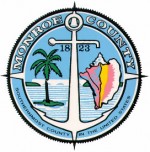MONROE COUNTY BOCC DECIDES NOT TO ADOPT GOAL 109, A WORKFORCE HOUSING INCENTIVE POLICY, IN A 4 TO 1 VOTE AT SPECIAL MEETING
MARATHON, FL – The Monroe County BOCC voted not to move forward with proposed Goal 109, the Hurricane Irma Workforce Housing Recovery Policy, at a special meeting in Marathon on Tuesday. Goal 109 was a series of proposed amendments to the Comprehensive Plan that would have incentivized workforce housing projects in unincorporated Monroe County for two years to help with housing recovery from Hurricane Irma.
Approximately 150 residents attended, and more than 30 people signed up to speak on the item that would have increased density per buildable acre for workforce housing projects for median-, low-, and very low-income categories in three zoning categories, primarily along US 1 intermixed with commercial development. It also included language to expedite the planning process by changing time frames for public noticed meetings.
Workforce housing is for people who derive at least 70 percent of their income from employment in Monroe County, and who meet maximum income criteria set by the County code.
“This is not a new topic, there has been a shortage of affordable places for working people in the Keys to live in for quite some time,” said Monroe County Planning Director Emily Schemper. “Hurricane Irma destroyed many workforce homes and made the situation worse.”
No specific development projects were considered at the meeting, but the BOCC ultimately decided a one-size-fits-all initiative would not work across the entire County. Commissioner Michelle Coldiron made the motion to eliminate Goal 109 in its entirety with Mayor Sylvia Murphy seconding.
The BOCC thanked County staff for the time they have put into all the facets of Goal 109. “The staff educated us on this and their efforts were not put to waste,” said Mayor Pro Tem Danny Kolhage.
Commissioner Heather Carruthers wanted to keep Goal 109 with modifications, pointing out that development in Monroe County has major impediments, like cost of land and cost of construction. “The way to overcome that is by sharing walls and infrastructure,” she said. “The time it takes to get through the regulatory process is too long. It is now 17 months after Hurricane Irma and this is where we are.”
She cited statistics for Monroe County including the number of second homes in unincorporated Monroe County as well as more than 1,000 open jobs she came across in the area while searching employment in the Florida Keys. “There are only 337 affordable ROGO units left in the Keys,” she said. “This is a real problem that will only get worse.”
The BOCC was adamant that they are not opposed to workforce housing, and they will look at new projects that come forward on a case-by-case basis.
[livemarket market_name="KONK Life LiveMarket" limit=3 category=“” show_signup=0 show_more=0]




No Comment